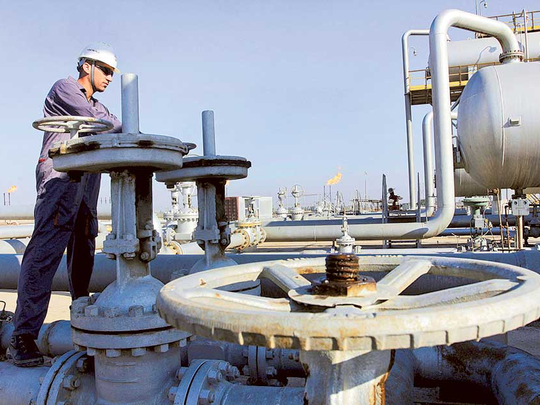
Baghdad/Basra: Iraq has reached agreement with BP, Shell and Lukoil to restart stalled investment in oilfields the firms are developing, allowing projects that were halted this year to resume and crude production to increase in 2017, Iraqi oil officials said.
The agreements, reached in July and August, effectively delay to the second half of the year projects that the three companies had planned to carry out in the first half, which had been suspended because of low oil prices.
As a result of the investment, Iraq’s crude output should increase by 250,000-350,000 barrels per day next year, the Iraqi officials said. The country now produces about 4.6 million bpd, most of it from the southern region.
Iraq is Opec’s (Organization of the Petroleum Exporting Countries) second biggest producer after Saudi Arabia, and the increase in its output, alongside that of Iran, could aggravate the global oil glut and complicate discussions between Opec and non-Opec producers on output limits to prop up prices.
Shell, BP and Lukoil all declined immediate comment.
According to documents seen by Reuters, all three firms agreed to spend in the second half of 2016 roughly half the budgets they proposed for 2015.
BP agreed to spend $1.8 billion (Dh6.6 billion) this year at the Rumaila field it operates. It had initially agreed to spend $3.5 billion last year, which it later revised down to $2.5 billion.
Shell agreed to spend $742 million after proposing $1.5 billion last year. Lukoil would spend $1.08 billion, compared to $2.1 billion it had proposed last year.
“Many vital projects that foreign firms were forced to halt due to lower oil prices will be brought online after the recent budget cuts agreements,” said Basim Abdul Kareem, the deputy chairman of South Oil Co that oversees oil operations in the region.
“The companies now should have the needed budgets to implement these projects,” he told Reuters.
Iraq has yet to reach agreements with Exxon, CNPC and Petronas on fields those firms are also developing in the south.
Struggling to repay
Oil companies helping Iraq develop its massive oilfields have to clear their spending with the government each year. They are then repaid with income from Iraq’s exports of crude oil produced from existing fields.
The arrangement worked smoothly when oil prices were above $100 a barrel but since crude has collapsed to about $40 a barrel, Iraq has been struggling to find enough oil to repay the companies for their investment.
Iraq relies on oil for nearly all its revenues and is spending heavily to fight Islamic State in its northern and western provinces.
With its finances stretched, Iraq asked foreign oil companies last year to spend less than proposed, and all but cut off investment entirely for the first half of this year to the major projects.
“The agreed investment budgets are covering almost the rest of 2016 and it’s obviously a win-win deal,” said another South Oil Company official who declined to be identified. “The companies will be able to resume work on many delayed projects that will help to raise Iraq’s production in early 2017.” “We are talking about at least 250,000 to 350,000 additional barrels a day in early 2017,” he added.
Factbox: Yemen resumes oil output, exports from Masila oilfields -agency
Yemen has resumed production and exports from its Masila oilfields for the first time in 16 months, state news agency sabanew.net reported on Thursday. The agency, which is run by the exiled government of President Abd-Rabbu Mansour Hadi, quoted oil minister Saif Al Sharif as saying that Yemen also hopes to resume production from the Shabwa and Marib oilfields, and to resume exports of oil and gas from the Ras Isa and Balhaf ports.
-Reuters












